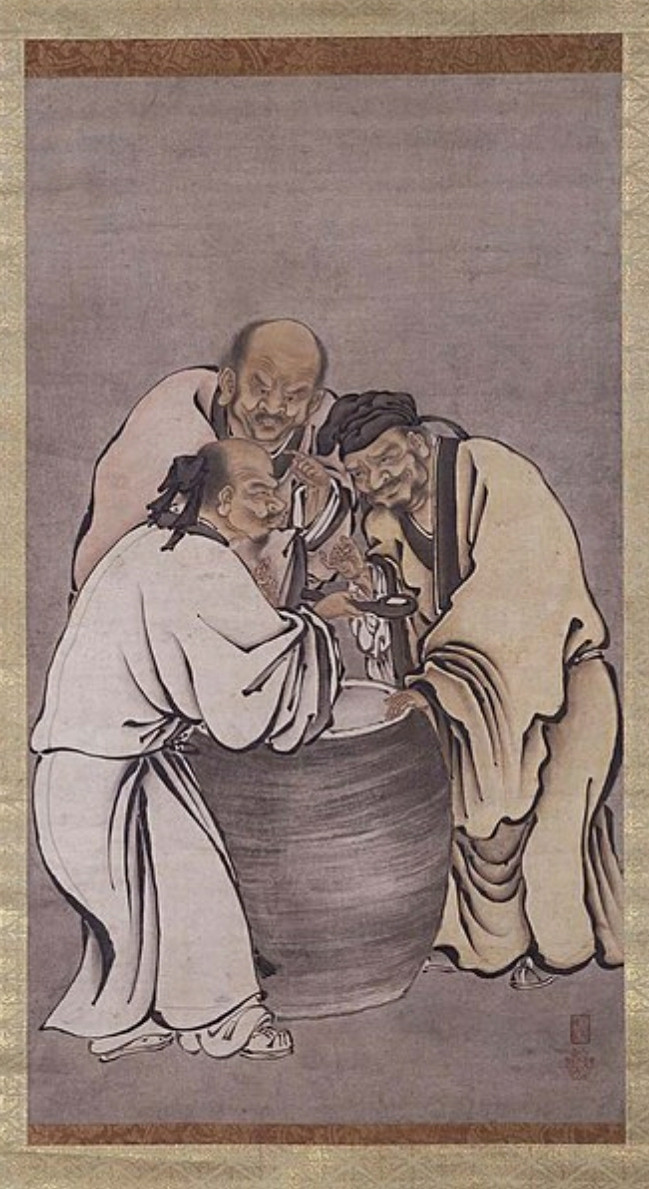Well, it is a caricature. And as any caricature it simplifies things while exaggerating and making fun of quite obvious aspects.
The substance they taste is not necessarily vinegar, it is the wine of life, but as it happens in real life the wine is rather not perfect.
To Confucius it is sour because in his view someone responsible did not fulfill his duty. Whether it was the wine maker or the person responsible for its storage - they must have neglected their responsibility and so the wine turned sour. This is how confucianism sees the world, as an interplay of social roles and duties. "It would be perfect, if only those fools followed the rules!"
To "the Buddha" all wine is bitter, an obvious allegory for the First Noble Truth. "Life is inherently imperfect." -- says the caricature.
The Lao-Tzu is supposedly above this viewpoint, in harmony with how things are, seeing the higher kind of inherent perfection even in the perpetually imperfect. This is the view not just of the Taoism but also of Mahayana's Dzogchen.
Who is the real buddha here? Don't tell me it's Lao-Tzu, it's not so obvious. Would the Buddha taste our life in the 21st century and conclude that it's perfect? It's not so simple.
The real Buddha, of course, would understand that reality has many sides and does not have the single taste. Its taste depends on what aspect you focus on.
The wine of life is sour, and it is bitter, and it is sweet. The beauty, as is the dread, is in the eyes of beholder. Unfortunately, most of beholders completely identify with their viewpoints and don't as much as entertain other perspectives, let alone grant them equal weight to their own.
To break free from a single viewpoint is, therefore, to stand above the caricature and to taste the real life.
Certainly, to only focus on the bitter aspect is what Buddha called "to maintain oneself in a maimed and injured condition". Don't do that to yourself.
